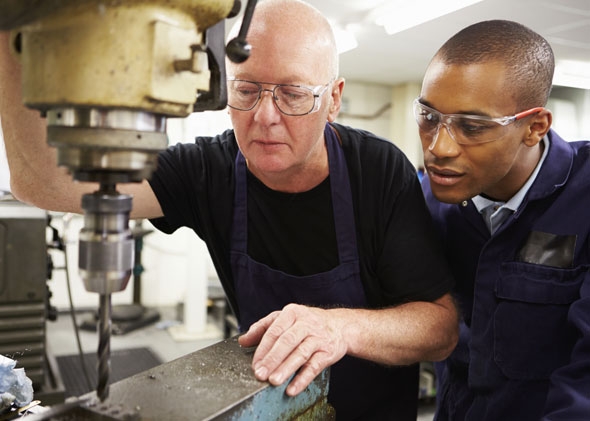
Is Longevity Good for Innovation?
Our society's innovators are now 60 and over.

Courtesy of Thinkstock
Silicon Valley is often seen as a place where swashbuckling young bucks start innovative new companies and change the world. Most of that is true, but the stereotype of young isn’t always quite right.
At an October Stanford Medicine event, Dr. Lucy Shapiro, talked about how she, as a professor of developmental biology, recently started a company around her invention – a new class of antibiotics based on boron instead of carbon. The upside of this newly engineered class of antibiotics is that they face no resistance, addressing an important need. She half-joked with the audience that she turned her technology into a company because, being in Silicon Valley, everyone was expected to venture into the ‘cowboy’ frontier of start-ups. Fighting antibiotics resistance does seem like a wild-west type of adventure, and one cool thing about inventor/bioscientist Dr. Shapiro is that she is in her mid-seventies and shows no signs of slowing down.
It might be surprising to learn that entrepreneurship can happen much later in life, since that’s not the script typically written by the media and older entrepreneurs rarely want to talk about their age. Indeed, according to a Kauffman Foundation report, “it turns out that over the past decade or so, the highest rate of entrepreneurial activity belongs to the 55-64 age group.” A study of Nobel Prize winners and great inventors adds to the narrative. According to Benjamin F. Jones, Professor at Northwestern’s Kellogg School of Management, the age at which innovations are being produced has increased by 6 years over the last century.
The existence of older innovators shouldn’t be astonishing given that there are many examples, both historical and recent. As Vivek Wadhwa points out, “Henry Ford introduced the Model T when he was 45. Sam Walton built Walmart in his mid-40s. Ray Kroc built McDonald’s in his early 50s. […] Ray Kurzweil published The Singularity Is Near in his 50s; Alfred Hitchcock directed Vertigo when he was 59; Frank Lloyd Wright built his architectural masterpiece, Fallingwater, when he was 68.” That’s not to say that the young don’t or can’t innovate as well, but it does help put the age/innovation issue in perspective.
Peter Thiel, investor and bestselling author of the book Zero to One: Notes on Startups, or How to Build the Future (with Blake Masters), is someone who is constantly talking with innovators. When asked what he thought of the importance of age to innovation, he responded that, “you can become an entrepreneur at any age – before 20 or after 50. There’s a lot that’s self-fulfilling.” But he pointed out that the important thing to consider may not be someone’s age when they start a company, but rather the age they are when they innovate within that company. As Thiel notes, “we always define these lists by the people who start companies, but we overlook the innovation that’s happening in other places. Larry Ellison is 70 and he re-invented Oracle multiple times during his career. Steve Jobs was more successful the second time around in his mid-40’s.”
Investors like Yatin Mundkur agree. A partner at Artiman Ventures, Munkur invests in what he calls “white space” companies, which are rare and “cutting edge with brilliant, disruptive ideas.” They also happen to be companies that are often led by innovators in an older age bracket compared to the assumed Silicon Valley standard. According to Munkur, his firm’s “average founder age is in the mid 40's.”
When asked how he viewed the difference between younger and older founders, Mundkur responded: “Our experience has been, in general, founders in their 20s are typically university and grad work spinoffs. Those in their 30s are evolutionary rather than revolutionary; they have seen inefficiencies in their place and they want to fix it and want a quick hit. Those in their late 30s and older are trans-disciplinary, have seen multiple sectors, have made money and are more settled, looking to make an impact, not looking for a quick hit. Of course there are exceptions.”
Clearly, innovation happens at all ages, so longevity can work to extend the potential of many people. The longer that one is alive and healthy, the more opportunities there are to create. Longevity is good for innovation, and that is good for everyone.